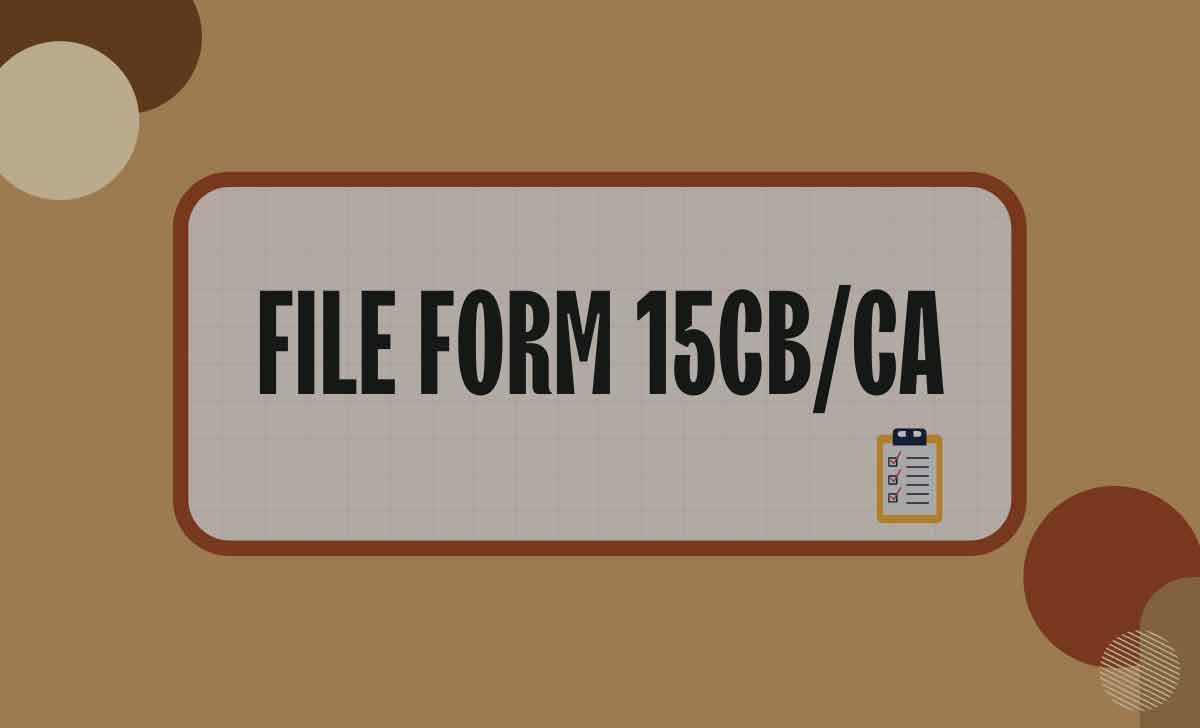Filing Form 15CA and 15CB online is a simple process that authorized users can complete with ease. It is important to note that Form 15CA and Part C must be submitted separately and in different steps, along with Form 15CB.
Form 15CB is a mandatory certificate that an Accountant must provide without fail in cases where any payment or a combination of payments exceeding ₹5 lakh in a financial year is made to a Non-Resident (who is not a company) or to a Foreign Company. This is absolutely essential when a certificate from the AO u/s 195 / 197 is not obtained and the payment is chargeable to income tax.
How to File Form 15CA through Online Mode
Here are the steps to file form 15CB/CA through the online mode
- Login to the e-filing portal using your user ID and password.
- Then go to the e-file and click on income tax forms.
- Then, select file income tax forms.
- On the next page, select form 15CA.
- Then click on Let’s get started.
- After that, a 15CA form may displayed.
- Once the form filled, click proceed.
- Then click yes to submit.

How to Submit Form 15CB in Online
Here are steps to submit form 15CB in online through income tax login mode
- Login to the e-filing portal using your valid CA credentials.
- Go to the e-file menu and click on file income tax forms.
- Then, tap on form 15CB and click on file now.
- Select the financial aid and submission mode of filling.
- Then click on let’s get started.
- Then enter Pan or Tan details of the Taxpayer.
- Enter the details of each section.
- Then click on the verify option.
- Enter the unique document identification number.
- If UDIN is not available, you can select I do not have UDIN.
- Then select the suitable e-verification option and e-verify.
- After successful e-verification, a success message displayed with the transaction ID and acknowledgment receipt.
Ref: Official user manual at form15cb-um
Now File Part C of Form 15CA
- Login to the e-file portal using the username and password.
- On the taxpayer dashboard, click on the e-file and go to the income tax form.
- Click on file income tax forms.
- On the next page select the form 15CA.
- Click on let’s get started.
- Choose part C and click proceed.
- Enter the ARN number of form 15CB filled by CA.
- Enter the details of each section.
- Then click yes to submit form 15CA after filling relevant details.
- After successful e-verification, a success message displayed with the transaction ID and acknowledgement number.
Also Read: Link Aadhaar & PAN Number by SMS for Income Tax
Filing of Form 15 CA Offline/Bulk mode
Here are steps to Filing of Form 15 CA offline/bulk mode
- Login to the e-file portal using the username and password.
- On the taxpayer dashboard, click on the e-file and go to the income tax form.
- On the next page select the form 15CA.
- On the selection of form 15CA, PAN or TAN of assessee may auto populated.
- Provide financial year, filing type and submission mode offline/bulk.
- Download the form 15CA offline utility.
- Click the Attach file and the taxpayer required to e-verify.
- After the e-verification, a success message displayed along with transaction ID and acknowledgement number.
- When bulk upload successful, an acknowledgement number generated for each form 15CA.
- Then go to the e-files, click on income tax forms and select the view filed forms.
- Tap on Downloadable pdf for form 15CA and made available in view filled forms.
Also Read>>> Income Tax Customer Care for eFiling, TAN / PAN and Refund
Is it mandatory to submit form 15CB?
No, it is not mandatory to submit form 15CB. It is applicable if your filing form part C of form 15CA.
Can Form 15CA withdrawn?
No, there is no option to withdraw form 15CA. In case, there is any change in the information, you can file a fresh form 15CA.
Who can issue Form 15CB?
A Chartered Accountant (CA) can issue Form 15CB with confidence after conducting a comprehensive examination of the remittance to ensure it fully complies with Indian tax laws.